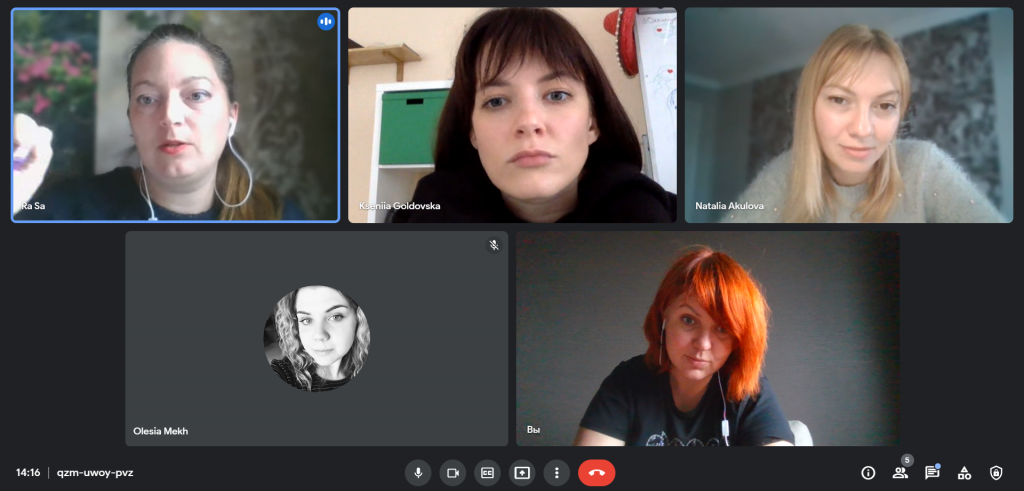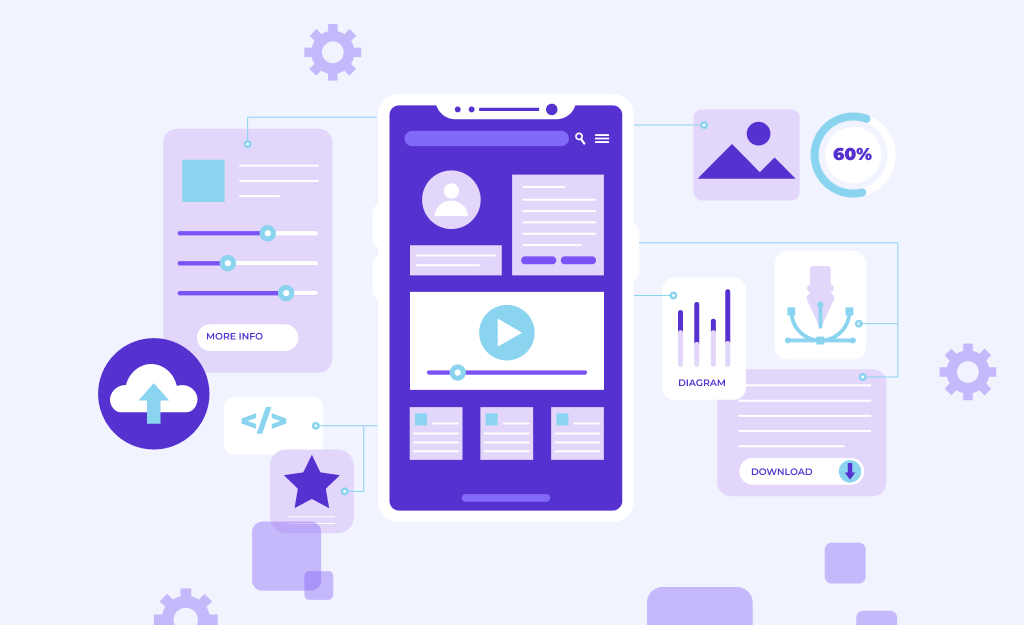Challenges of women in tech
As the Jellyfish.tech team has always been 50% male 50% female, the gender equality within the company goes without saying.
We had a fresh look at this problem when started to work on the absolutely amazing project: a platform for a virtual community of women leaders to network, seek support & mentorship — Vital Voices. Guided by the belief that women are essential to progress in their communities, they identify women with daring visions for change. Since 1997, they have partnered with 18,000 women from 182 countries, representing diverse sectors and backgrounds and presenting a safe space for everyone.
After another release, we got an idea to bring up the women in tech challenges on our blog.
And who knows better about how women are doing in tech than actual women in tech? I’ve interviewed my female colleagues and women leaders from our network to find out what do they think about the problem of gender equality in tech.
Women in technology: female opinions

I’ve gotten our female team members interviewed on how they feel about being women in tech, asking four basic questions:
- When did your career journey begin? Tell us more about your background.
- Did you face any challenges being a woman in tech? How did you manage to solve them?
- Do you agree that women have a much larger barrier to being hired for technical entry-level positions?
- What can be done to engage more women to work in tech?
Here’s what they answered:

Kseniia, CEO & co-founder
I started my IT career as a project manager in 2013, getting a Master’s degree in foreign economic activity. Later on, I had to balance motherhood with work — there was no remote option, so I started freelancing. During my freelance career, I got a chance to cooperate with awesome people, one of whom was the full-stack developer I started Jellyfish.tech with back in 2016. Now we mainly work with startups (creating MVP and reducing the time to market) and edtech projects.
All I can remember for now is a few guys from my previous job who didn’t take me seriously at first. Was it my age or my gender, it’s hard to tell. However, after the beginning of the first project I managed, they understood I had skills and stopped being skeptical about a girl project manager.
Further, I was lucky to start my own company and surround myself with like-minded people.
Providing that I’m directly related to the hiring process, I can say for sure that there is no difference whether you’re a man or a woman: we look at your soft and hard skills.
In my book, we should stop dividing the interests into “male” and “female” and impose them on children. In school, girls perform as well as boys in math, it’s a fact. However, when it comes to college/university, we start dividing faculties and specialties into male and female. Women are expected to choose humanities, and men are mostly pushed into engineering & technology. I’m for giving freedom of choice to people disregarding their gender and basing the career path on personal preference, skills, and ambitions.

Viktoriia, Project manager
Having no idea who I want to be, I got into the Technology Machine-building Institute after school, which became a real challenge for me. I couldn’t get half of the technical blah blah my profs said, so I spent long evenings with my mom (who btw also wasn’t into tech) trying to figure it out. Finally, I got interested in technology so much to get a grant and took my Ph.D. Now, technology is a kind of hobby along with art.
Once I wasn’t hired, because I could take maternity leave someday. However, they changed their mind and called me back after a while to offer me a job.
“But, you’re a girl!” is probably the main challenge society imposes on us. How to overcome it? I believe everything depends on our perception of the situation. I’m sure every person is unique, talented, and multifaceted. This is about your personal and professional skills and has nothing to do with gender.
I’m sure 70% of companies will prefer to hire men only because they definitely won’t take parental leaves or days off as their child is sick. However, in my book, this number is decreasing year by year.
I would replace “women” in your question with “people”, as, in my opinion, we have no need to engage female workers in tech just for the statistics. We should engage more talented people to work in tech. But generally, everything starts at a very young age: parents should encourage girls’ ambition to take apart a clock, for example, instead of making them play with dolls.

Nata, Business development manager
I studied international economics at university and got into an international truck company as a project manager right after graduation. At the end of the final interview, the director asked me: “Why does such a pretty girl need to work with trucks?”. And this was the question every male employee wanted to ask. It took me a while to make them get rid of this skepticism and accept me as a team member.
Before Jellyfish.tech, I worked as a project manager communicating with traditionally minded customers from the Middle East and Latin America. Of course, dealing with the clients from these regions was easier for men. My customers doubt the idea that women can do more than serve coffee and print contracts, and I had to prove I was capable of doing my job each time. It was still a valuable experience. After that, I met Kseniia, started working with customers from Europe, and was finally relieved.
I believe professional skills are coming to the fore when speaking about being hired to a Ukrainian IT company. Unfortunately, that isn’t true for all tech-related industries. At my previous company, hiring a man gave a single advantage to the employer: men didn’t take maternity leave. But I’m still sure it’s a global problem of our society that isn’t ready to support working moms, struggling to find a job.
Maybe, I won’t tell you something new, but my idea is to seek women’s support and support them back. Besides, grow your professional skills and never stop learning, as we’re still lucky to live in a world where hard and soft skills are more important than gender.

Helen, Front-end developer at Jellyfish.tech
My tech career began during the fifth year of education on the Computer Sciences faculty. I took 10-month JS courses and got a job as a frontend game dev after they’d ended. Then, I put my career on pause, taking maternity leave. Actually, I had a fear of being left behind, so after a year, I started freelancing for 3-4 hours a day and learned Angular at the same time.
During working in tech, I didn’t face any inequality: the tasks could be easy or hard, not male or female. It’s a good thing I had a team ready to support and help me in any situation. The only thing I had to deal with was keeping my skills up to date during my maternity leave.
I believe that everyone is equal in today’s tech world; your skills, experience, and interest in what you do are more important than gender.
It’s worth popularizing tech activities among girls from a young age (I understood tech was my passion during the additional informatics classes at school). Besides, the world of IT is so diverse: engineering, web & mobile development, quality assurance, SEO, design — everyone could find something to enjoy.

Tamila, Front-end developer at Jellyfish.tech
I have some tech background, as I studied in a Physics and Mathematics gymnasium, and graduated from the faculty of Physics and Mathematics. Later, I took a CS50 Harvard course to learn the basics of programming and studied Javascript on my own.
After courses, I got into a company where the developers were only men (30 people) and I was the one woman. But the difficulties that I had were not related to my gender, it was my little experience in JS, HTML, CSS. Therefore, I believe that it’s not important for junior-middle positions whether you are a man or a woman, or how old you are.
I think one of the ways to reduce the gender gap is to provide parental leave to male workers and encourage them to take it.

Helen, QA specialist
As I remember myself, I always enjoyed correcting other people:) I have a keen eye for detail (I believe it’s important for my tester’s job) and don’t know how but I always break down everything around me.
I didn’t face any challenges, but I still don’t deny they exist. However, I’m sure the IT sphere is where your skills, attitude, and ambition come to the fore, not your gender, appearance, or age. There could be a small percentage of companies who judge by gender, it only means they aren’t for you or for any reasonable person as well.
I don’t know the global situation, but I could definitely share my experience. I started my QA career almost from zero and didn’t notice any barrier when getting at Jellyfish.tech.
I believe women should decide what they want themselves and go for it. An inspiring example I’ve got in mind is my friend who learned C++ and got into a medtech company. Now she’s happy to make the world better every day. Besides, a little education on the diversity of the tech sphere and the opportunities it offers could be of use.
Advice from women leaders
We’ve also asked the women leaders from our network to give their opinion on the actual problems of women in tech. We’re so grateful for your time and the thoughts you shared!
Hope, your advice will inspire many women & girls not only to work in tech but become who they want to be, listening to their inner desires, not to somebody who tries to impose a certain role on them.

Listen to yourself rather than to others, make your choices based on your innate abilities, talents, ambitions, and desires, not be afraid to seek an external empowering source: mentorship, coaching, psychology. And don’t be afraid to ask as many questions as you need. Always.
Natalya Berdikyan, Life by Design Academy

Confidence is the key. Being more confident in the workplace and having that quality being built up from a very young age, men get better pay than women. Since childhood, guys are given this feeling of confidence and women often don’t have that. I could also advise seeking help and mentorship from other women leaders, luckily you can reach out and find the support online. I’m also thinking of creating a peer group for women in tech and e-commerce to provide space for conversation.
Christina Adams, DIOSA designs

Getting inspired by the real example of successful women is the best way to understand that women could actually achieve anything they want. Get rid of negative thoughts and believe in yourself!
Emine Zerrin Şakır, founder at Mangodo

Build a women’s community around you, as we all need to communicate with women leaders, our female colleagues in product/sales/engineering teams, creating a safe space to discuss, empower, grow, and become more confident.
Tammy Jones, SellingtoScale

1. Go for it, be confident in your abilities and skills and seek support to help you progress in your career.
2. Find a mentor early on.
3. Network as much as you can.
4. Find tech community organizations to join and add value to. You may need to join a few before you decide which one aligns with your values so you can focus on your long-term goals with that organization.
5. Participate in hackathons.
6. Go to tech conferences.
7. Don’t limit yourself to your own city — see what is happening globally too.
Michelle Hua, UK Global Talent Visa Coach and Recipient, former co-founder of Women of Wearables and founder of Made With Glove.




Well, it’s simple but not easy. Most of the problems we’re facing today have been caused by the fact that for thousands of years the patriarchy has been the ruling principal of the vast majority of all societies and countries. Men have a tendency to confuse confidence with competence and to believe in social darwinism where the top dog rules by strength, power and brutal force. If we want to solve the climate crisis and all the problems connected to it we need to transition away from the patriarchy and adopt those social principles women tend to use more than men such as collaboration over competition, harmony and balance over discrimination and conflict, creativity and passion over hierarchy and brute force, etc.
Lisa, it’s a pleasure to read your articles. Thanks for the awesome work!
Thank you all for the encourage to countinue in this field. I love a challenge.
Hi and thank you for your thoughts. I’m right there with you, on women needing to empower themselves more, especially within the tech field, because it’s not about man or woman.. its tech, it’s… about what the problem is and how do we fix it, point blank.
It should not matter that a woman is giving you the information that you in need, in order to accomplish what your goals are and to get the job done.
Times are different now in 2023 compared to 1970 and before then, where the woman was expected to stay at home and cook, clean and raise children while the man holds the job and supports the whole family.